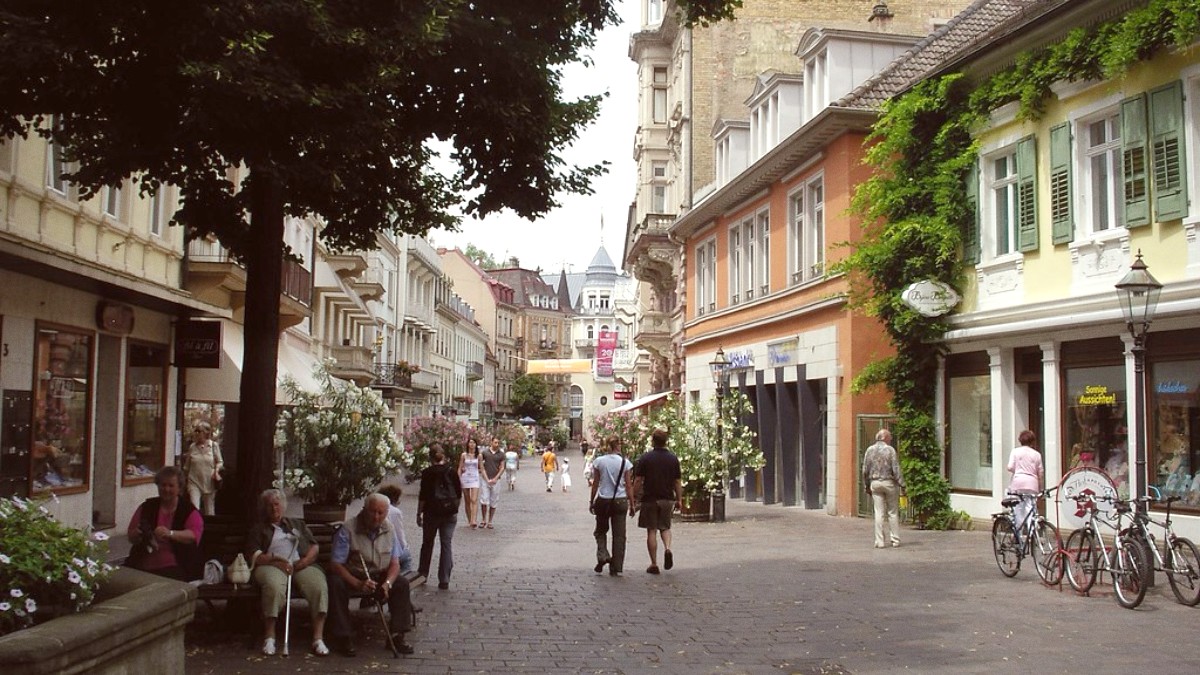
Baden Wurttemberg, Germany
Spring (March-May) brings mild temperatures and increasing sunshine. Average temperatures range from 5°C (41°F) to 15°C (59°F). Summer (June-August) is warm and often sunny, making it ideal for outdoor activities. Average temperatures typically range from 15°C (59°F) to 25°C (77°F), though days can occasionally reach 30°C (86°F). Summer is generally the wettest season, characterized by occasional thunderstorms.
Autumn (September-November) experiences mild to cool temperatures, with average ranges from 5°C (41°F) to 15°C (59°F). This season stays cooler and drier than summer, making conditions for exploration. Winter (December-February) brings cold temperatures, with potential for snow, especially in higher elevations of the Black Forest. Average temperatures range from -2°C (28°F) to 5°C (41°F). Precipitation is generally less than in summer, but snow can occur, changing the landscape.
Summer thunderstorms can develop suddenly and intensely. Winters may bring snow and icy conditions, notably on roads leading into the Black Forest, making careful driving a practice. The image below shows people strolling through a park in autumn, a picturesque time for exploration.
June-August, December
Warm, pleasant weather; festive Christmas markets.
Higher prices for accommodation and flights; larger crowds.
April-May, September-October
Pleasant weather, fewer crowds, generally lower prices, beautiful blooms or foliage.
Some attractions may have reduced hours; chance of cooler temperatures or rain.
November, January-March
Lowest prices and fewest crowds; unique winter experiences.
Cold weather limits outdoor activities; some attractions may be closed or have reduced hours.
During shoulder seasons, a chance of cooler temperatures or rain exists, so packing a Lightweight waterproof jacket and a Compact travel umbrella is a good practice.
Autumn sees mild to cool temperatures, providing comfortable conditions. Consider a sweater or a light jacket for spring and autumn evenings. Winter requires warm, insulated clothing, including a Waterproof winter coat, hat, gloves, and a Scarf for warmth.
Thermal baths provide a notably inviting experience during cooler months.
Swimwear is a requirement for thermal baths.
Flip-flops or Sandals are good for comfort and hygiene within the bath facilities.
A Quick-dry travel towel is useful, and robes are often available for rent.
The baths are a relaxing escape regardless of the outside temperature.
Entry regulations for Germany vary based on your nationality. Germany belongs to the Schengen Area.
Citizens of many countries, including the USA, Canada, Australia, the UK, New Zealand, Japan, and South Korea, can enter Germany for tourism or business purposes for up to 90 days within any 180-day period without needing a visa. Travelers from countries not included in the Schengen visa-waiver program must apply for a Schengen visa (Type C) before travel.
Present your valid passport and visa (if needed). Carry proof of adequate financial resources, accommodation, and a return or onward ticket. Secure travel insurance covering medical expenses and repatriation for at least €30,000, valid for the entire Schengen area and stay duration.
The official currency in Germany is the Euro (€). ATMs are widely available and give favorable exchange rates. Major credit and debit cards are accepted in most hotels, restaurants, and shops. It is a good idea to carry some cash for smaller purchases. Tipping (Trinkgeld) is customary but not mandatory, a gesture of appreciation for good service (5-10% in restaurants, rounding up for taxis).
Germany maintains high standards for public health and safety.
Confirm all routine vaccinations are current. Vaccinations for Hepatitis A and B are often recommended for travelers. Consult a healthcare professional 4-6 weeks before travel. Pack a small Travel first aid kit with pain relievers, antacids, and adhesive bandages. Sunburn is a risk; use SPF 50 broad-spectrum sunscreen. For Black Forest hiking, be aware of ticks; wear long pants and use Insect repellent with DEET.
Tap water in Germany, including Baden-Baden, stands safe for drinking. Carry a Reusable water bottle. Food hygiene standards are high, making eating out generally safe.
Germany has a low crime rate. Baden-Baden itself is a very safe city, including its central areas and popular tourist zones. Pickpocketing can occur in crowded areas but is less prevalent than in larger metropolitan areas. Always remain mindful of your belongings. Baden-Baden has no specific "no-go" areas.
Overall very safe for tourists.
Petty crime occurs in crowded tourist spots; keep belongings secure.
The Oos River can swell during heavy rainfall, but significant flooding impacting tourist areas stays rare. Summers occasionally have heatwaves; hydrate and use Sun protection. Winter driving with icy roads and snow, especially within the Black Forest, makes caution important if driving.
Generally temperate weather.
Winter driving conditions in Black Forest need caution.
For immediate assistance, know the emergency numbers. Keep important contacts, like your hotel, embassy, and family members, readily available. Store them on your phone and also carry a physical copy for easy access.
Police: 110. Fire/Ambulance: 112.
Non-emergency medical on-call: 116117.
| Category | Information | Details |
|---|---|---|
| Hospital | Klinikum Mittelbaden Baden-Baden Balg | Main hospital for the area. |
| Healthcare Quality | Excellent standard of medical care | Modern facilities and trained professionals. |
| Travel Insurance | Highly Recommended | Covers medical emergencies, trip cancellation, lost luggage, personal liability. |